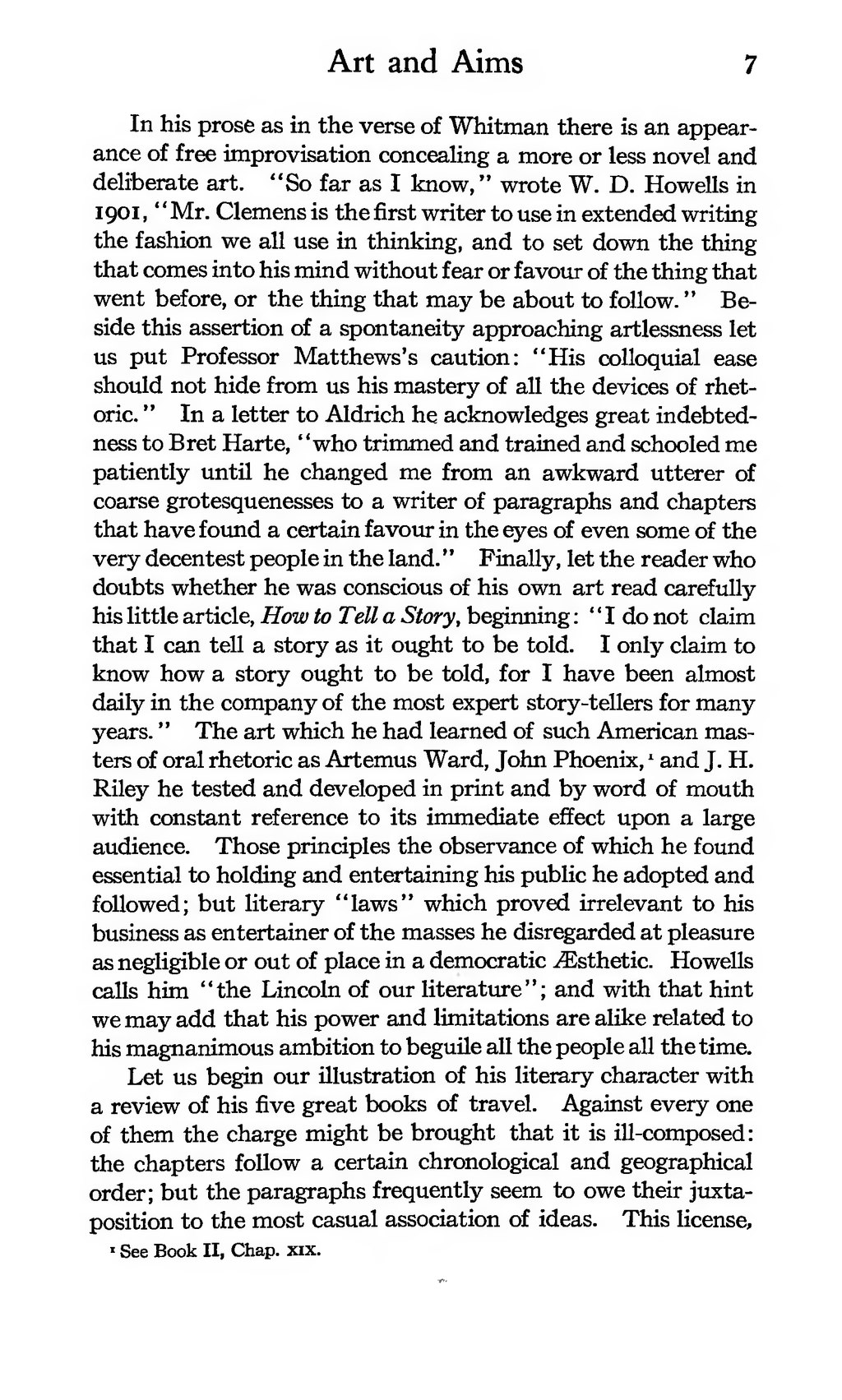In his prose as in the verse of Whitman there is an appearance of free improvisation concealing a more or less novel and deliberate art. "So far as I know," wrote W. D. Howells in 1901, "Mr. Clemens is the first writer to use in extended writing the fashion we all use in thinking, and to set down the thing that comes into his mind without fear or favour of the thing that went before, or the thing that may be about to follow." Beside this assertion of a spontaneity approaching artlessness let us put Professor Matthews s caution: "His colloquial ease should not hide from us his mastery of all the devices of rhetoric." In a letter to Aldrich he acknowledges great indebtedness to Bret Harte, "who trimmed and trained and schooled me patiently until he changed me from an awkward utterer of coarse grotesquenesses to a writer of paragraphs and chapters that have found a certain favour in the eyes of even some of the very decentest people in the land." Finally, let the reader who doubts whether he was conscious of his own art read carefully his little article, How to Tell a Story, beginning: "I do not claim that I can tell a story as it ought to be told. I only claim to know how a story ought to be told, for I have been almost daily in the company of the most expert story-tellers for many years." The art which he had learned of such American masters of oral rhetoric as Artemus Ward, John Phoenix,[1] and J. H. Riley he tested and developed in print and by word of mouth with constant reference to its immediate effect upon a large audience. Those principles the observance of which he found essential to holding and entertaining his public he adopted and followed; but literary "laws" which proved irrelevant to his business as entertainer of the masses he disregarded at pleasure as negligible or out of place in a democratic Æsthetic. Howells calls him "the Lincoln of our literature"; and with that hint we may add that his power and limitations are alike related to his magnanimous ambition to beguile all the people all the time.
Let us begin our illustration of his literary character with a review of his five great books of travel. Against every one of them the charge might be brought that it is ill-composed: the chapters follow a certain chronological and geographical order; but the paragraphs frequently seem to owe their juxtaposition to the most casual association of ideas. This license,
- ↑ See Book II, Chap. XIX.

